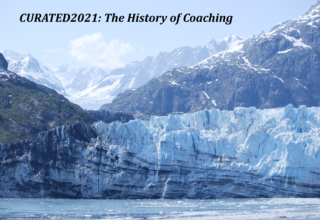
A relevant example for coaches would be the foundational knowledge a therapist gets in graduate school (yielding a diploma), the contextual knowledge they gain through hours of practice and qualifying exams (yielding a license), the self-knowledge they get through supervision and on-going development (yielding a craft), and the professional knowledge they get through involvement in and validation by their relevant associations (yielding a role/status). If coaches wish to develop a recognized profession, they need to make similar decisions that are fitting for their place as a postprofessional practice. In doing so, they must recognize that while they will be responsible for all four domains, there will be many others who want to have a voice in and will benefit from the evolution of the foundational and contextual knowledge sets. At the same time, it is important to recognize that this process will be much easier if it is acknowledged that only a small subset of people will want to pursue the development of a coaching profession. Attempts to put everyone in the same “tent” or define THE tent for everyone else will continue to be frustrating for all involved. Instead, it seems more productive to think of it as a series of tents, each loosely affiliated through a commitment to coaching principles and practices, but free to define their parameters for and paths to mastery using the four domains.
As such, looking at these four domains also sheds light on the need for developing a better taxonomy for types of coaches and for levels of mastery. As part of this process, coaches and other professionals using coaching need to make more visible and validate the causal connections between (I) their models, theories, and assumptions; (2) their decisions and actions; (3) their identities and roles; and (4) their results in order to enhance their coaching capacities, improve their coaching outcomes and grow the collective body of knowledge about coaching. In doing so, coaches in particular can learn from the earlier eras in identifying some of the key issues for each of the four knowledge domains.
- The Preprofessional Era (1880-1945) reminds us of the ongoing importance of foundational knowledge in coaching – theories, models, and guidelines from the basic and applied sciences. Work in this arena is essential for the development of a solid foundation for this work, particularly theories of development and change. For non-coaches, this domain will include additional theoretical knowledge pertaining to the expertise necessary for their specific context. For example, a family business consultant needs expertise in family law, family dynamics, etc. in order to successfully use a coaching approach with her clients.
- The Scientist-Practitioner Era (1945-1970) reminds us of the ongoing importance of professional knowledge in coaching – competencies and methods by and as practitioners in reflecting on important elements and outcomes. Work in this arena is essential for making decisions as a practitioner, particularly in terms of ethics and standards as part of being accountable to others. For example, a coach needs to develop new competencies in shifting from individual to group work, one of which would be the ability to make higher order decisions around confidentiality.
- The Professional Era (I970-1990) reminds us of the ongoing importance of self-knowledge in coaching-awareness, maturity and wisdom based on the process of coaching and the personal development of practitioners as they participate in it. Work in this arena is essential if we are to be at our best, particularly in terms of developing greater wisdom and maturity in dealing with higher stakes and higher levels of complexity. For example, a coach needs to develop and engage in a regular reflective practice in order to candidly assess his progress and identify his learning edges.
- The Postprofessional Era (1990-2007) reminds us of the ongoing importance of contextual knowledge in coaching – situational savvy and strategies based on a systemic understanding of our role and the client’s issues and objectives. Work in this arena is essential for the achievement of significant and relevant results, particularly in terms of how to track what is happening in conversations, in organizations and in the world. For example, a manager and a direct report need to sort out the agendas on the table in a given conversation and the expectations and needs around their resolution – all the while balancing a variety of often competing agendas in which they operate.
- The Artisan Era (2007-) reminds us of the ongoing importance of integral knowledge in coaching- spiritual depth, ethical capacity, and institutional/cultural agility in weaving together the strands of science and practice at higher levels. Work in this arena is essential for the continued evolution and increased influence of coaching as a service and an approach. In essence, it is about the alignment of all four domains of knowledge in order to advance both coaching and the way in which people communicate in every aspect of their life.
















